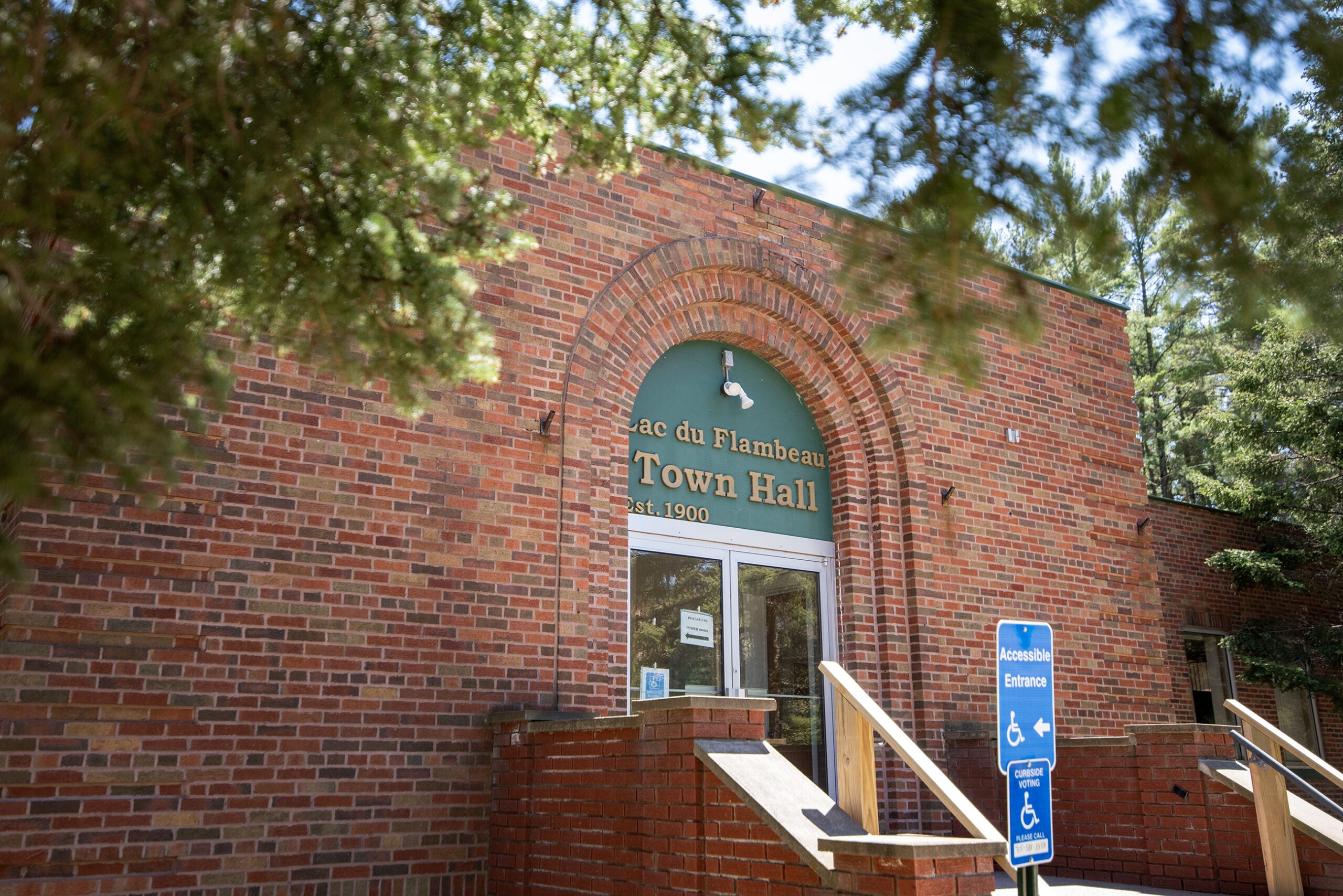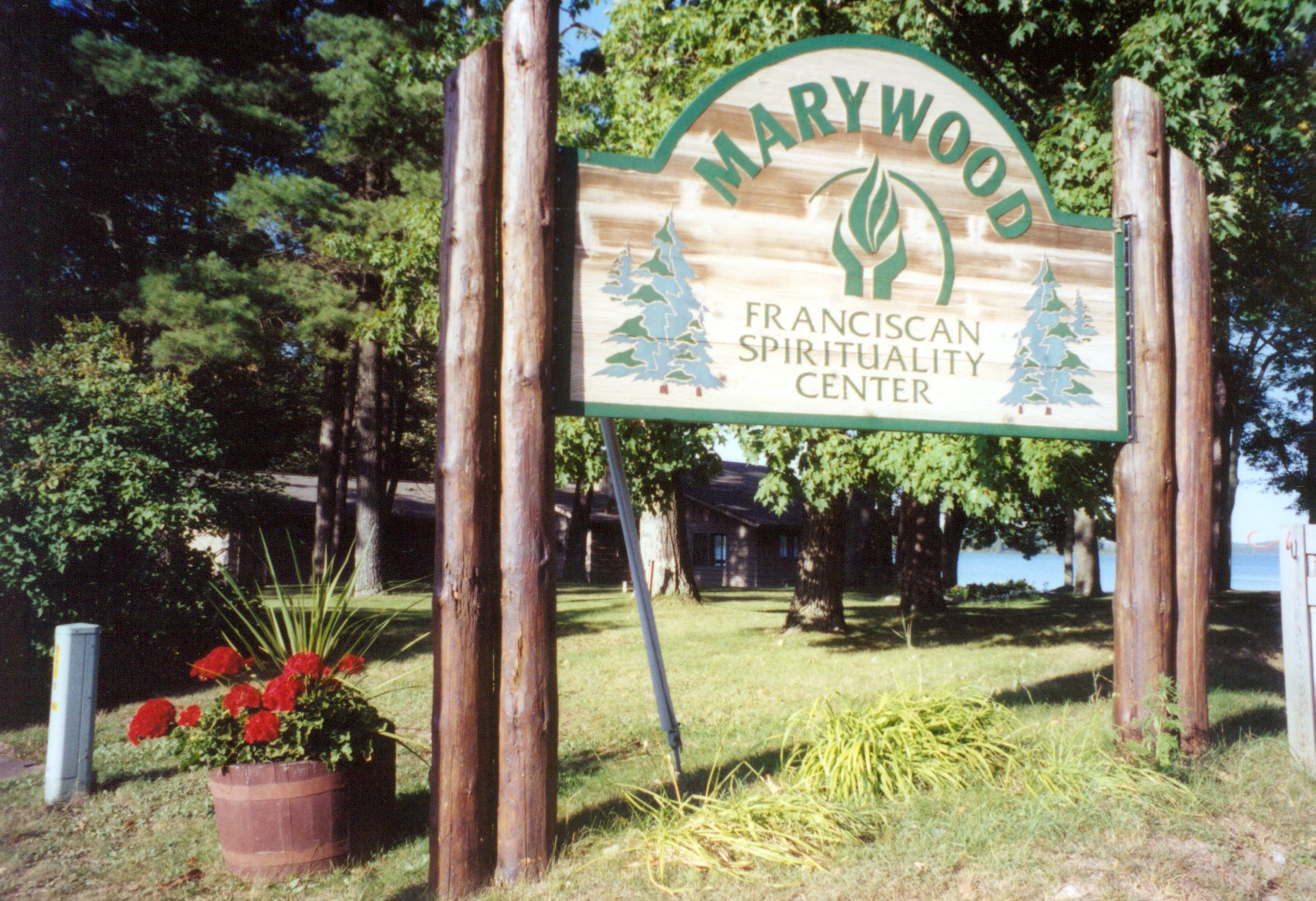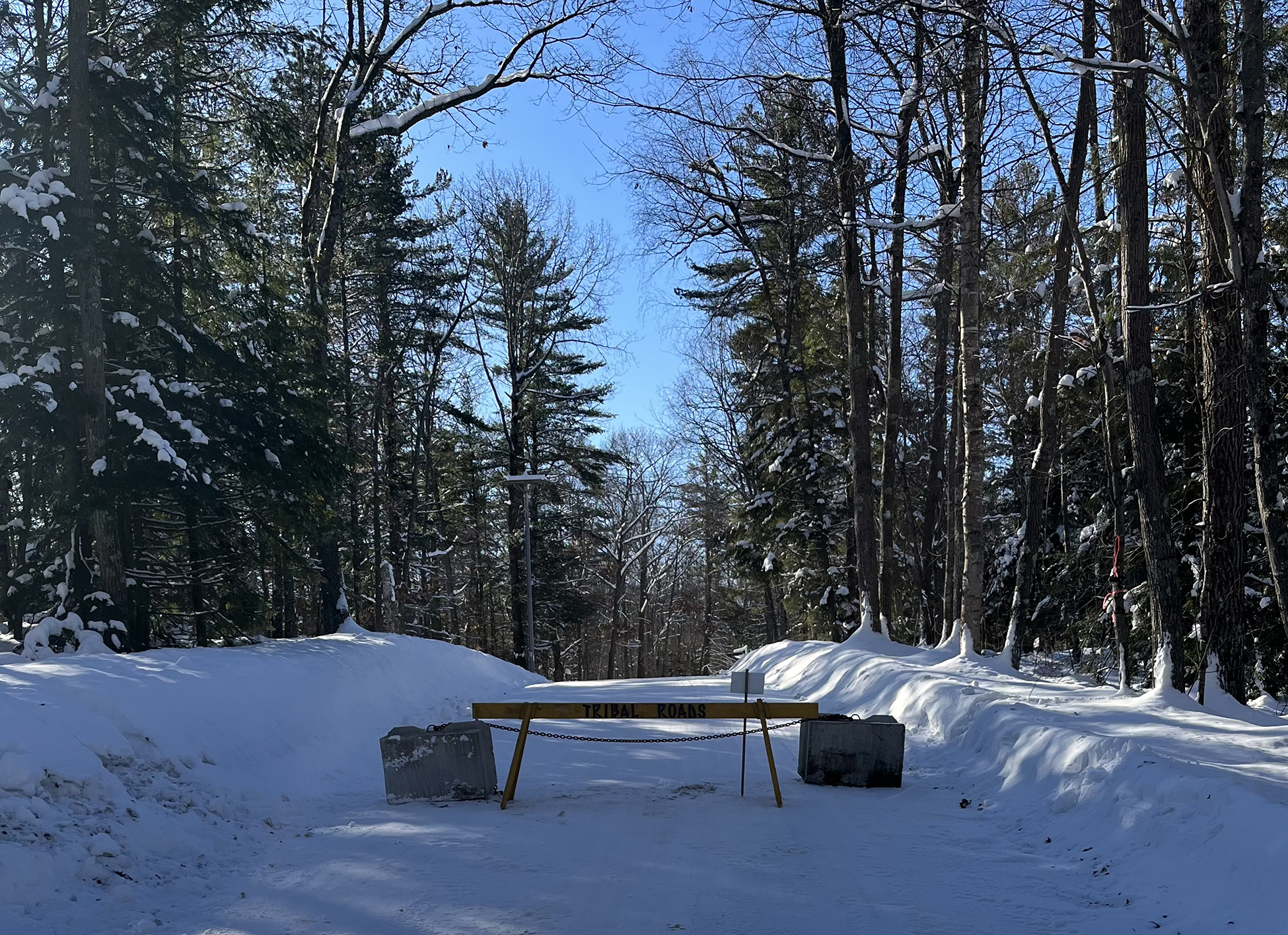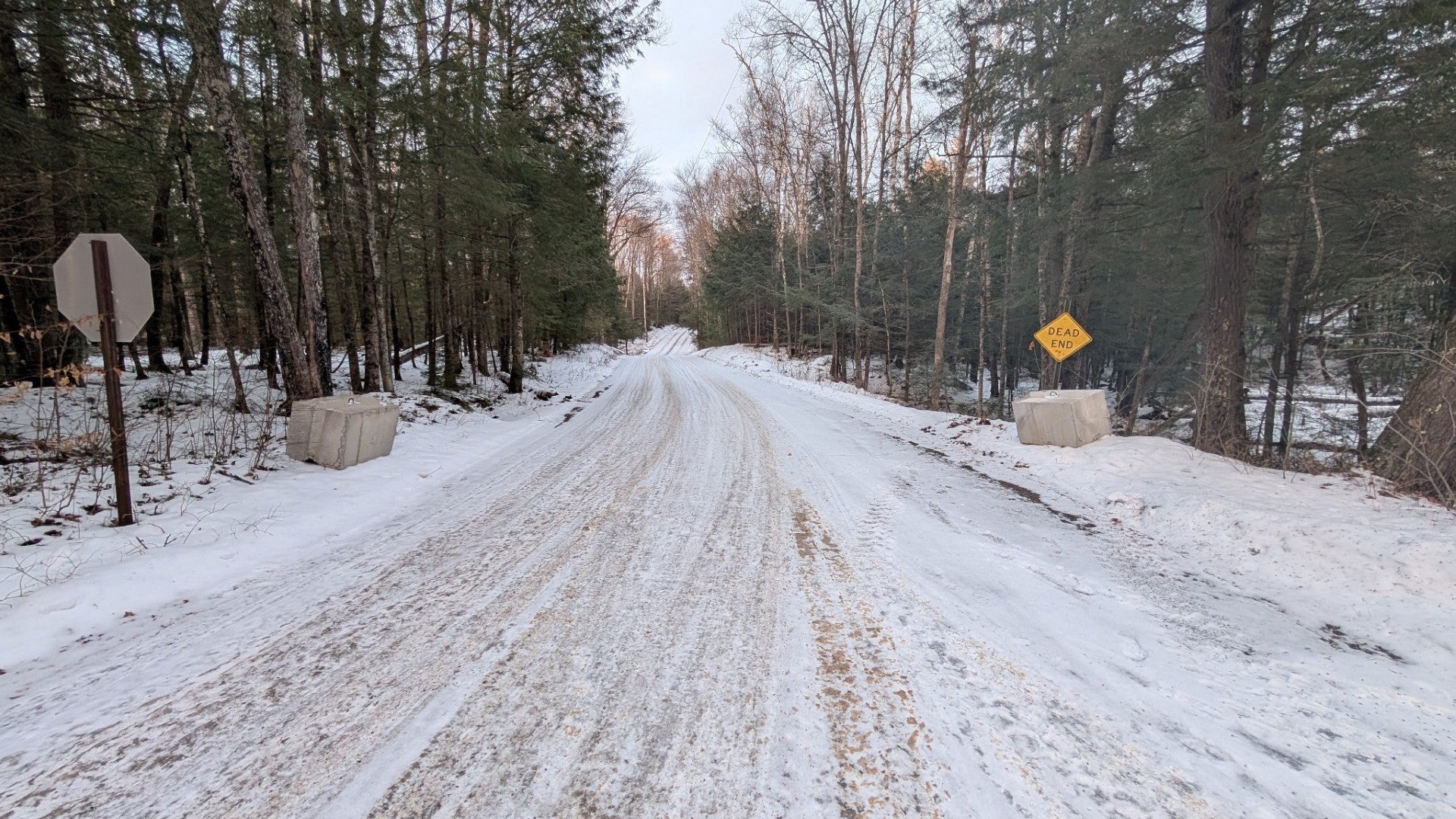Town of Lac du Flambeau leaders and lawmakers debated ways to resolve a standoff that has dragged on for more than 18 months over access to roads on the Lac du Flambeau reservation, draining the town’s resources.
But what happens next is unclear based on a Friday meeting.
In January 2023, the tribe blocked four roads crossing tribal lands after negotiations failed between the tribe, the town of Lac du Flambeau and title companies after easements on them expired a decade ago. Tribal officials agreed to reopen the roads in March that same year, but for a fee that’s been climbing each month.
News with a little more humanity
WPR’s “Wisconsin Today” newsletter keeps you connected to the state you love without feeling overwhelmed. No paywall. No agenda. No corporate filter.
The tribe first sought $20 million in damages for what it said was trespassing by the town. Since then, tribal leaders have asked for roughly half that amount, and they want to grant annual leases in exchange for a fee equal to 1.5 percent of the fair market value of homes along those roads.
Town officials said earlier this month they can’t afford to pay for permits to keep the roads open.
On Friday, Town Board Chair Matt Gaulke questioned whether lawmakers would support legislation to provide funding or facilitate the transfer of land to the town that would be conveyed to the tribe. U.S. Rep. Tom Tiffany, R-Hazelhurst, said he’s willing to take part in any resolution at the federal level, but the devil is in the details.
“I will not simply stand for extortion and allow this to be able to happen,” Tiffany said. “I would hope that we could get an agreement, but it has to be reasonable for all parties involved, but also for the taxpayers of the United States of America. Because they’re the ones that are ultimately going to have to have to fund this.”
Gaulke also asked whether state or federal officials would assist with law enforcement intervention or a court injunction to ensure the tribe can’t block roads until a resolution is reached. Tiffany said he would support a legal remedy to prevent the tribe from blocking roads, but he added that’s not how the dispute should be resolved.
State, federal lawmakers weigh in on the dispute
Representatives of Democratic U.S. Sen. Tammy Baldwin and Republican U.S. Sen. Ron Johnson also attended. In a letter, Baldwin said she stands ready “to assist with any part of an agreed upon resolution that requires action by the federal government.” Johnson’s representative, Tom Petri, said the senator firmly believes there’s no legislation that could be quickly passed to resolve the issue, but he maintains an open mind.
State Sen. Mary Felzkowski, R-Tomahawk, and state Rep. Rob Swearingen, R-Rhinelander, said they would like to see a compromise between the town and the tribe. Even so, Felzkowski said any assistance for the town would have to come from the federal government — not the state budget. She said it would be difficult to convince state lawmakers to support legislation that allocates funding to resolve the dispute.
“They don’t like what the tribe is doing, holding people hostage. They don’t like it at all, and they think it’s wrong. It’s kind of like giving into terrorism. I’ll be really honest,” Felzkowski said. “They’re going to push back hard on them.”
Felzkowski also lauded Gov. Tony Evers for urging mediation in the ongoing feud. Even so, she claimed the governor could solve the issue by providing COVID-19 relief funds that remain under the federal American Rescue Plan Act.
While Evers did not attend the meeting, he said in a letter that the town can buy state lands from the Board of Commissioners of Public Lands. He added that the town and title companies should explore that option if there’s serious interest in providing land in exchange for access on the roads.
“Should a real solution and resolution be reached, I am happy to make myself available to join the parties, most especially in the instance I can be of any assistance in affecting said resolution,” Evers wrote.
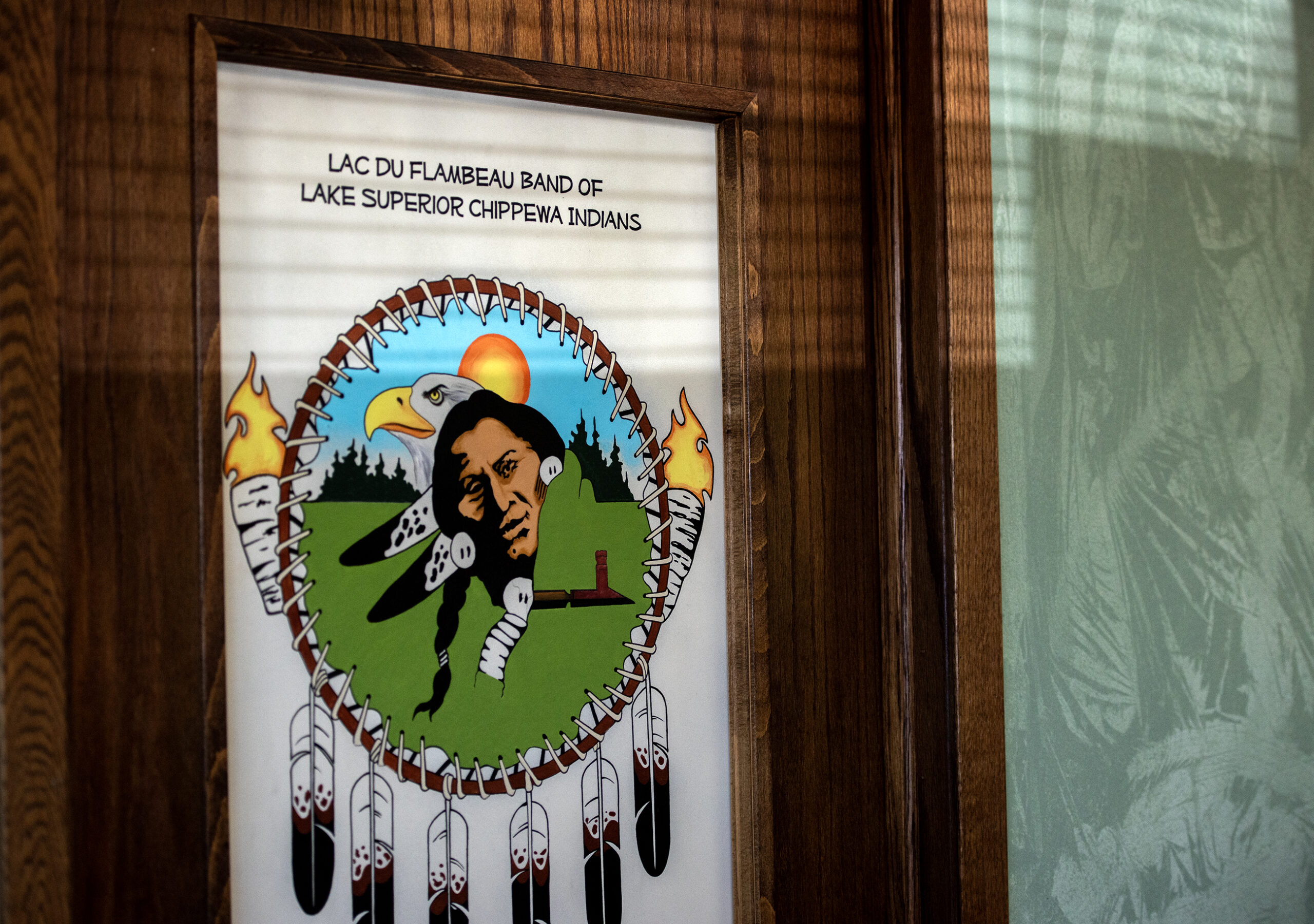
Town leaders say they can’t resolve the dispute on their own
Gaulke said it hurts him to see how the ongoing dispute has torn apart the Lac du Flambeau community, a majority of whose residents are members of the tribe. He said the town doesn’t have the funds to settle the matter, but noted that the state and federal government do have resources at their disposal.
“I hope that they step in to help us out with that,” Gaulke said. “They’re helping out their own citizens and the people of the town.”
The town invited the Lac du Flambeau tribal council to attend the meeting, but no tribal leaders were present.
At one point, Tom Maulson Sr., a tribal elder and former tribal president, interrupted the meeting.
“You don’t have control of the lands on our reservation. What makes you think you have that?” Maulson said. “We’ve got to talk. People got to talk.”
Tribal officials have said they are open to trying to mediate the dispute provided the tribe doesn’t have to give up more of its rights or sovereignty. Lac du Flambeau Tribal President John Johnson Sr. previously told WPR the tribe isn’t going to be bullied for trying to protect its lands.
“We try to find peaceful resolutions, but it doesn’t happen all the time,” Johnson told WPR in May. “And it feels like our voices are going unheard in our own territory, which we have sovereignty over.”
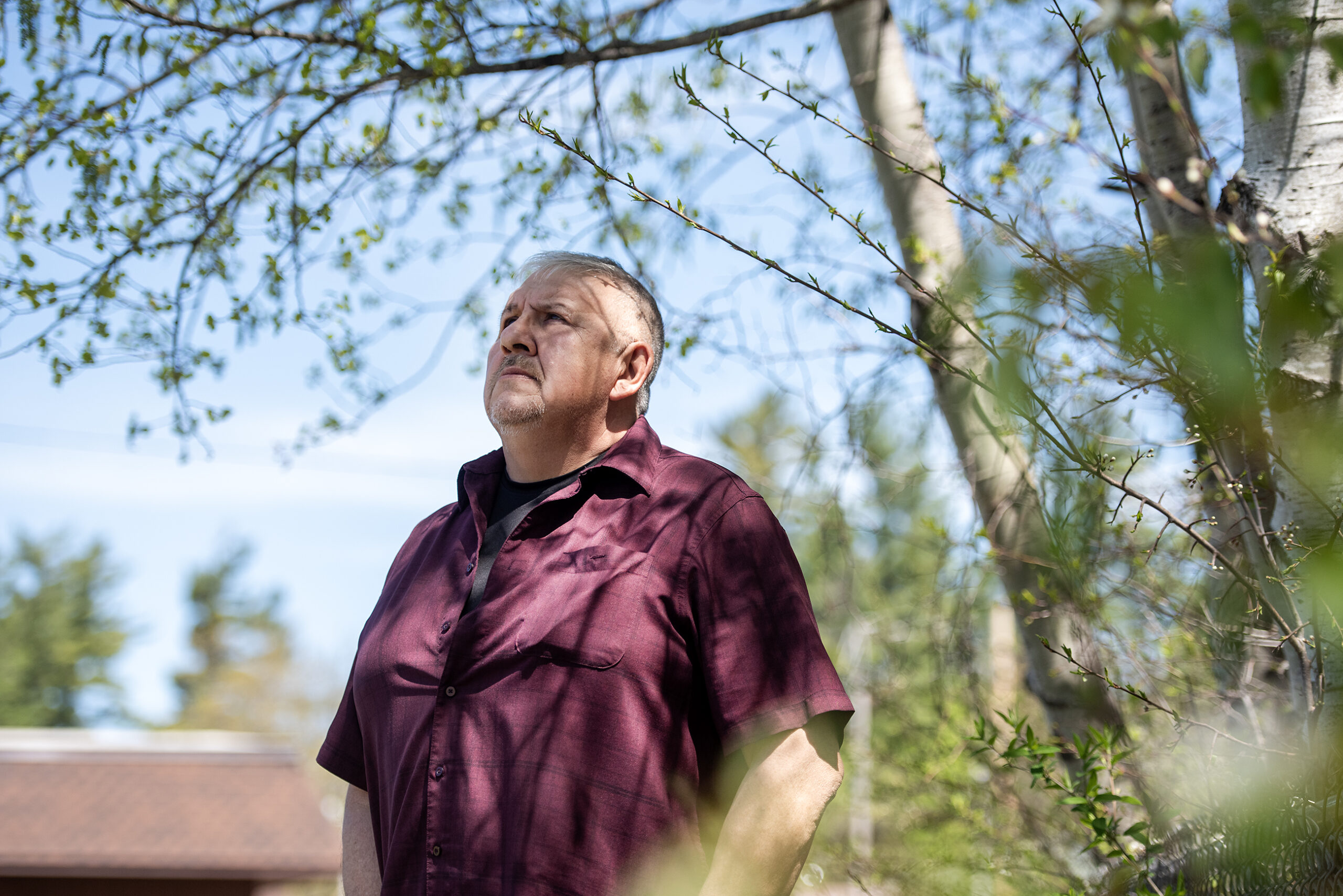
Roads to remain open for the time being
In a letter, Johnson said officials had until Friday to make the payments or access would be restricted on Elsie Lake Lane, Center Sugarbush Lane, East Ross Allen Lake Lane and Annie Sunn Lane.
The town paid $50,000 to the tribe Thursday with funds provided by title companies for homeowners along the four routes. The payment ensures roads will remain open through Sept. 12.
The ongoing feud has resulted in multiple lawsuits. The federal government sued the town last year on behalf of the tribe for trespassing. Both the town of Lac du Flambeau and homeowners have filed separate federal lawsuits against the Bureau of Indian Affairs.
In July, the town proposed a $1.8 million settlement to the tribe to resolve the dispute. However, the tribe rejected the town’s offer.
Wisconsin Public Radio, © Copyright 2026, Board of Regents of the University of Wisconsin System and Wisconsin Educational Communications Board.

